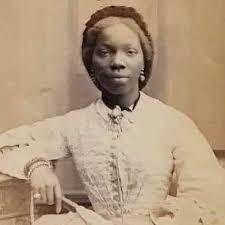In the 19th century, a remarkable and often overlooked group of Black wordsmiths emerged, leaving behind a profound legacy of poetry that resonates with readers even today. Their verses, infused with emotions, struggles, and aspirations, provide a unique window into the experiences of Black individuals during a pivotal period in history. Join us as we explore the captivating world of poetry created by these talented Black wordsmiths.
Exploring the Context
To truly appreciate the poetry of Black wordsmiths in the 19th century, we must first understand the historical context in which they lived and wrote. This was an era marked by the abolition of slavery, the fight for civil rights, and the complex journey of African Americans seeking identity and freedom. It was within this turbulent backdrop that these poets crafted their verses.
Phillis Wheatley: A Pioneer of Poetry

One of the most renowned Black wordsmiths of the 19th century was Phillis Wheatley, who gained recognition for her exceptional literary talents. Born in West Africa and enslaved in America, Wheatley’s poetry revealed not only her mastery of language but also her longing for freedom.
Wheatley’s verses often centred on themes of religion and morality, reflecting the influence of her white evangelical Christian owners. Her poem “On Being Brought from Africa to America” is a poignant reflection on her own journey from Africa to slavery in the United States. In this piece, she reconciles her faith with her experiences, highlighting the complexities of her identity as a Black poet.
Paul Laurence Dunbar: Celebrating Black Vernacular
Paul Laurence Dunbar was another prominent Black wordsmith of the 19th century whose work celebrated the richness of Black vernacular and culture. Dunbar’s poems often employed dialect and vivid imagery to depict everyday life and the struggles of African Americans. His poem “We Wear the Mask” is a powerful exploration of the mask that hides the pain and suffering faced by Black individuals in a racially oppressive society.
Dunbar’s ability to capture the essence of the Black experience in America endeared him to readers and solidified his place in literary history. His poetry resonated with both Black and white audiences, making him a bridge between cultures.
Frances Ellen Watkins Harper: A Voice for Women
Frances Ellen Watkins Harper was not only a poet but also an influential abolitionist and women’s rights advocate. Her poetry often addressed themes of social justice, racial equality, and the empowerment of women.
In “Bury Me in a Free Land,” Harper passionately expresses her desire to be laid to rest in a land where freedom and equality prevail. Her verses are a call to action, urging society to strive for a better future.
James Weldon Johnson: The Song of the Harlem Renaissance
The 19th century also paved the way for the Harlem Renaissance, a cultural movement in the 20th century that celebrated Black art, music, and literature. James Weldon Johnson was a key figure in this movement, and his poetry reflected the vibrancy and spirit of the Harlem Renaissance.
Johnson’s poem “The Creation” is a lyrical masterpiece that draws inspiration from African-American spirituals. It narrates the biblical story of creation while infusing it with the rhythms and soul of Black culture.
Influence and Legacy
The poetry of Black wordsmiths in the 19th century left an indelible mark on American literature and society. Their verses challenged stereotypes, confronted racial injustices, and celebrated the resilience of the Black community. These poets not only paved the way for future generations of Black writers but also contributed to the broader literary canon.
Langston Hughes: Continuing the Tradition
The legacy of 19th-century Black wordsmiths continued into the 20th century with poets like Langston Hughes. Hughes embraced the themes and styles of his predecessors, using poetry as a means of social commentary and cultural celebration.
In his poem “The Negro Speaks of Rivers,” Hughes pays homage to the deep connection between Black individuals and the world’s great rivers. His words echo the enduring strength and history of the Black community.
Conclusion
The poetry of Black wordsmiths in the 19th century remains a testament to the enduring power of literature to capture the essence of a time and place. These poets used their verses to navigate the complexities of identity, race, and freedom, leaving behind a legacy that continues to inspire and educate.
As we take a closer look at the poetry of Black wordsmiths from this era, we gain insight into the struggles and triumphs of the Black community. Their words serve as a reminder of the resilience and creativity that have shaped African-American culture and history. Poetry, as crafted by these gifted individuals, transcends time and remains a powerful medium for expressing the human experience…(read more)